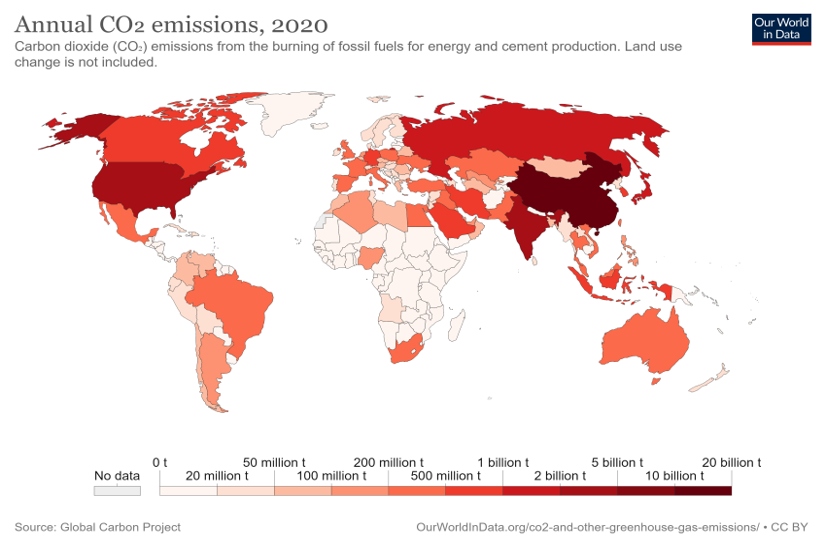Please see below my lecture at All Souls College, Oxford, titled ‘The Long Road to Net Zero’:
Slide 1
Solutions to CO 2 output have to be multilateral not unilateral. With the exception of China, no country is big enough to make a difference to world output by its own actions without buy in from others.
Reducing CO 2 substantially will only be possible if people want the new green products and services. It cannot be delivered by bans, subsidies and taxes.
Current net zero policies rely heavily on making the use of fossil fuels dearer running the danger of increasing inequalities and allowing the rich to buy themselves pardons for continuing use of fossil fuels.
Slide 2
From UN Report October 2021:
Total estimated Green House Gas emissions 2025 54.7 Gt 58% above 1990 level
2030 54.9Gt 58.7% above 1990 level 15.9% above 2010
UN says GHG emissions need to be 43% lower than 2010 by 2030 to hit 1.5 degree C increase, or 25% lower to hit 2 degrees.
This decade will see a further increase in the amount of CO2 generated by the world economy with an increase in the annual use of fossil fuels.
The main producers will be China, India and other emerging economies. The USA and the EU accounting for a quarter of current CO 2 will reduce their output a bit.
Slide 3- The Scale of the Problem
Slide 4 – The main sources of CO2
China 30.65% 10,670,000m tonnes
USA 13.5% 4,700,000m tonnes
EU 9% 2,600,000m tonnes
Germany 2% 644m tonnes
Russia 4.5% 1,580,000m tonnes
UK 1% 329m tonnes
Slide 5
Sources of energy for China
Coal – 57%
Oil – 20%
Gas – 8%
Main fossil fuels total – 85%
Sources of energy for USA
Oil – 37%
Gas – 32%
Coal – 11%
Main fossil fuels total – 80%
Sources of energy for EU
Oil – 37%
Gas – 25%
Coal – 11%
Main fossil fuels total – 73%
Slide 6 – Gas – a transition fuel?
Natural gas versus coal
EU designation
Mixing hydrogen with natural gas
Blue and green hydrogen
Slide 7 – How do you power homes and factories when the wind does not blow or blows too hard?
The dangers of over reliance on wind energy – the UK has days when wind only supplies 2% electricity
Need for electricity storage
Pump storage systems
Green hydrogen as an energy store
Battery storage
Time shifting of power use
Slide 8 – Carbon accounting
Is it sensible to shift from a petrol to an electric car?
Total carbon generated by manufacture of new vehicle and destruction of old vehicle.
Over what time period do you amortise that excess carbon
What mileage would you need to do each year to make the vehicle switch worthwhile?
How do you guarantee that your battery is only recharged with renewable power?
Slide 9
Carbon accounting
Putting in a heat pump
CO2 produced in manufacture of equipment and installation
Nature of the electricity to fuel the heat pump system
Need for heating and immersion heating back up to secure sufficient temperature to water and air ?
Slide 10
Carbon accounting for wind energy
The carbon dioxide produced during fabrication and installation of the turbines and towers
The carbon dioxide generated for replacement turbines and parts
The carbon dioxide generated for the stand by power capacity needed
The carbon dioxide produced when stand by generation is used during low or high wind periods
Slide 11 – What would make the green products fly off the shelves?
Cars – range, refuelling and recharging, cost, style
Heating systems – Average temperatures, cost, degree of intrusion
Diets – taste and appearance of alternatives to meat/ social acceptability
Slide 12
Technologies for the 2030s and 2040s
Green hydrogen for storage of renewable power
Green hydrogen to drive internal combustion engines
Nuclear power and small nuclear reactors
Nuclear fusion?
Large battery storage
More use of water power and pump storage
Hydrogen for home heating and industrial processes
Follow this news feed: John Redwood MP






